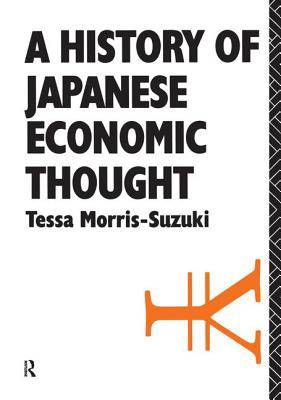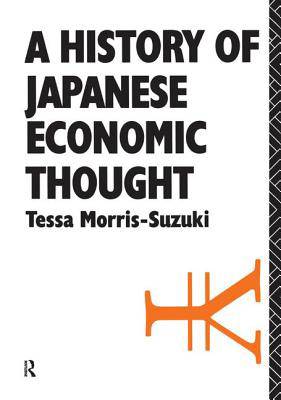
- Afhalen na 1 uur in een winkel met voorraad
- Gratis thuislevering in België vanaf € 30
- Ruim aanbod met 7 miljoen producten
- Afhalen na 1 uur in een winkel met voorraad
- Gratis thuislevering in België vanaf € 30
- Ruim aanbod met 7 miljoen producten
Zoeken
Omschrijving
Economics, in the modern sense of the word, was introduced into Japan in the second half of the nineteenth century. However, Japanese thinkers had already developed, during the seventeenth and eighteenth centuries, a variety of interesting approaches to issues such as the causes of inflation, the value of trade, and the role of the state in economic activity. Tessa Morris-Suzuki provides the first comprehensive English language survey of the development of economic thought in Japan. She considers how the study of neo-classical and Keynesian economics was given new impetus by Japan's 'economic miracle' while Marxist thought, particularly well established in Japan, was developing along lines that are only now beginning to be recognized by the West. She concludes with an examination of the radical rethinking of fundamental economic theory currently occuring in Japan and outlines some of the exciting new approaches which are emerging from this 'shaking of the foundations.
Specificaties
Betrokkenen
- Auteur(s):
- Uitgeverij:
Inhoud
- Aantal bladzijden:
- 224
- Taal:
- Engels
- Reeks:
Eigenschappen
- Productcode (EAN):
- 9781138437067
- Verschijningsdatum:
- 25/09/2017
- Uitvoering:
- Hardcover
- Formaat:
- Genaaid
- Afmetingen:
- 138 mm x 216 mm
- Gewicht:
- 569 g

Alleen bij Standaard Boekhandel
+ 513 punten op je klantenkaart van Standaard Boekhandel
Beoordelingen
We publiceren alleen reviews die voldoen aan de voorwaarden voor reviews. Bekijk onze voorwaarden voor reviews.











